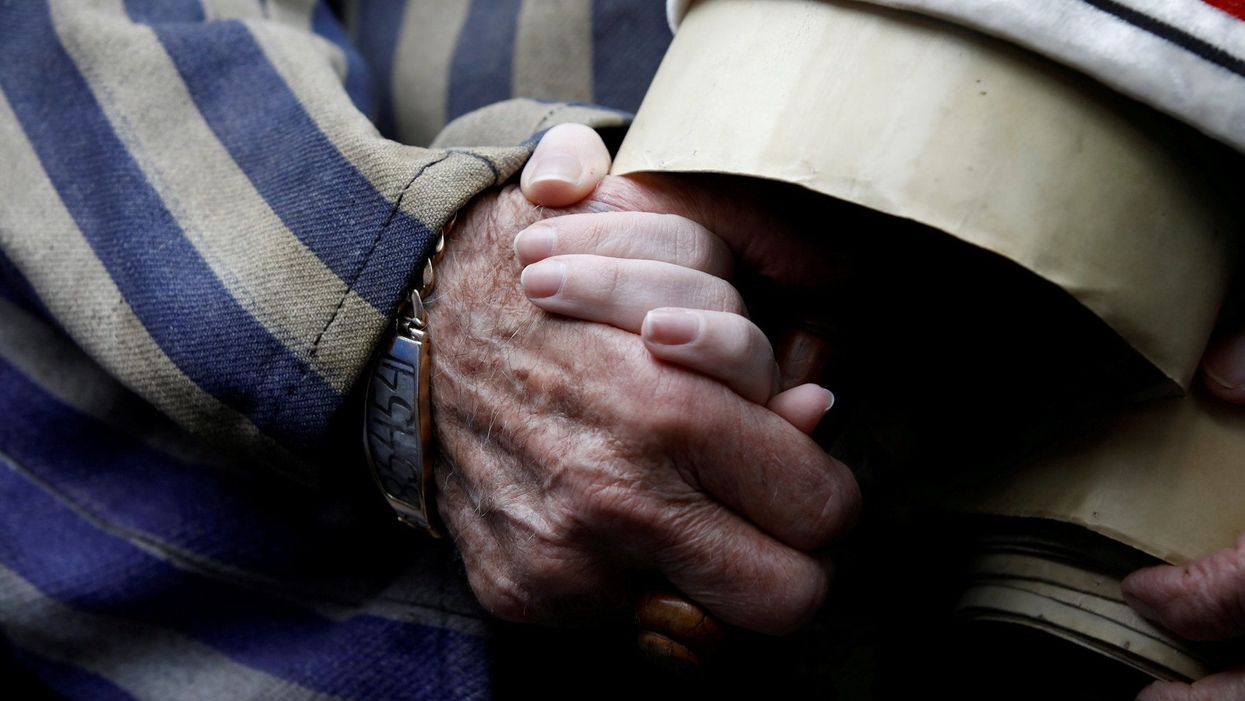
When my grandfather, Zigi Shipper, was 51, he had a heart attack and the doctors informed my grandmother that the outlook was bleak. Her response? “The Nazis tried to kill him for five years and didn’t succeed; I’m not too worried about this.”
He turns 90 today.
If living well is the best revenge than Grandpa Zigi is the Gary Cooper of North West London. To be born to an orthodox Jewish family in Poland in 1930 would be viewed by many as losing the lottery of life but the word Zigi uses over and over again to describe his time on this earth is “lucky”.
Zigi’s parents divorced when he was young and he was brought up by his grandparents in Lodz. The country’s third largest city, Lodz’s Jewish community numbered around 233,000 prior to the outbreak of the war. When the Soviet army entered the city a day after Zigi’s birthday in January 1945, only 877 Jews were still alive.
Of the 223,000 Jews in Lodz before the invasion, only 10,000 survived the Holocaust at all. One was my grandfather, a fact he attributes, typically, to good fortune.
When Zigi was just 10 years of age, the Jewish population of Lodz was marched into the Ghetto and the horrors that would mark his adolescence began in earnest. In overcrowded, deeply unsanitary conditions, Zigi’s grandfather died of malnutrition while those unable to work were sent to their deaths at the camps. Two years after arriving in the Ghetto, there was a round-up and my grandfather was put on a lorry ready to be deported. Looking around and realising he was surrounded solely by children, the old and the infirm, Zigi instinctively jumped off in the few seconds the guards weren’t watching closely.
Without that split second decision, I would not be writing these words today.
In 1944, a year after he would have celebrated his bar mitzvah in a sane world, Zigi was put onto a cattle truck and sent to Auschwitz-Birkenau.
My grandfather still often ponders that fateful journey and the fact that his primary thought upon seeing people die inside the truck was that there might be a little more room and a place to sit down. The Nazis knew only too well that when people are robbed of their humanity they cease to be humane.
After years in the ghetto, Zigi was so hungry that when he saw smoke rising from the chimneys on arrival at Auschwitz he assumed fresh bread was being baked.
I thought of this on one of my own visits to the camp when confronted by a mountain of cooking utensils confiscated from prisoners. The optimism and naivety of those poor souls believing they’d be able to do their own cooking or be baked fresh bread at an extermination camp tells you just how unprepared the average person was to accept their fate.
It is very hard to imagine the unimaginable.
On one occasion, while working in a railway yard, five men were caught stealing. As punishment, they were hanged in front of the camp. In a moment they went from living to dead for no greater crime than stealing cigarettes. The moment has never left my grandfather:
“Each one jumped off the stools they were put on so as not to give the Germans the satisfaction of knowing they killed them.”
Zigi was liberated in May 1945 and later learned his grandmother, the woman who brought him up, died in Theresienstadt on the day of liberation. She was not able to enjoy a single day of freedom.
Ultimately, though, my grandfather’s story is an uplifting tale of survival against the odds.
These days Zigi spends his days educating young people about the dangers of hatred and where it can lead.
After the war, Zigi was reunited with his mother in London and would eventually meet my grandmother at a club for young Holocaust survivors in Belsize Park. They would go on to have two children and six grandchildren. When Zigi first returned to Auschwitz in the 1990s, with his two daughters for company, he looked to the heavens as he held them in his arms and said, “We are here. Hitler did not succeed.”
The traditional Jewish toast is L’Chaim, meaning “to life”. At his birthday celebration this afternoon, we will use this term as we toast a bona fide hero, a man whose life has proved more extraordinary than most.
My great grandfather is now a great-grandfather and his fourth great-grandson was born just this week. Hitler did not succeed. L’Chaim – to life.













